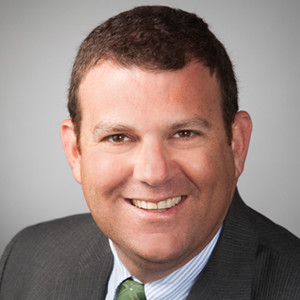It goes without saying that public relations professionals are expected to participate in the emergence of social media as a medium for their profession. The advent of Twitter in particular was the wake-up call to many PR practitioners that the landscape of their profession was changing fast. Twitter seemed to explode overnight with “social media experts” feverishly tweeting and retweeting anything and everything related to developments in the social media space.
A quick survey of the online content that PR professionals post yields a predictable conclusion: whether it is Facebook, Twitter or a blog, the content tilts heavily toward aggregating articles related to social media and discussing industry trends. I follow several individuals on Twitter who dedicate their online presence almost exclusively to social media issues. While there is certainly value in the exchange of information among professionals collectively grappling with industry change, I have to believe that most PR professionals also have interests outside of their professional life which compete for a place in their online personality.
The question is whether we as professionals are expected to dedicate our online persona exclusively to the practice of PR, or if there is room for us to utilize social media tools to express personal – even controversial – viewpoints.
I would argue that the most significant contribution social media sites have made to culture is the democratization of the message. The Biz Stones of the world rightly anticipated that the individual, given the opportunity, would editorialize on everything from Coca-Cola Zero to the State of the Union. While most PR professionals who are active online seem content to limit their discussion to their professional life (at least that is what I have observed), they cannot be expected to forego participation in this new democracy.
Below are three common sense suggestions to help start a conversation about the public expectations and personal persuasions of PR professionals. I will let the PR ethicists out their deal with dilemmas relating to the field’s ethical code of conduct; that is beyond the scope of this blog post.
First, if you have strong political views and cannot keep them to yourself, consider addressing separate topics on each Web site. For example, use Twitter as a forum for discussing your profession and Facebook to rant about your congressman. Even if your Facebook friends and Twitter followers overlap, they will know what to expect when visiting each site. By constructing a virtual wall between your personal and professional life, it will be difficult for anybody to claim that your opinions corrupt your professional judgment, or worse, that you were expressing the views of a client when you were really just ranting.
Second, if you do choose to mix your personal and professional life on a single site, be consistent so that your audience knows what to expect from you. If your followers expect you to discuss social media and technology issues, and you randomly interject a personal anecdote about a political fundraiser you attended, understand that some followers may be turned off. However, if you regularly address controversial social/political issues in your Tweets – even if you mostly discuss your professional life – your audience will understand you better and (hopefully) appreciate your transparency.
Thirdly, and this is a no-brainer, be aware of the issues your client is involved in and take them into account before posting anything online. This is especially true if you regularly discuss media issues and personal matters using the same Web site, as this elevates the risk that somebody could associate your personal opinions with your client.
It is easy to forget that social media was created to help people build relationships. Many of the lessons learned from our non-virtual interactions have yet to translate into the social media culture. The same friend who would rather avoid an in-person conversation about politics probably wants to avoid it online, too. The storming phase of a relationship – when two individuals search for equilibrium by exploring the limitations of their behavior – also exists online. By deliberately and consistently helping your network understand who you are, you should be able to achieve that equilibrium. Of course, issues related directly to a client require extra sensitivity.
While you cannot (and do not want to) please everybody, a little foresight can protect you as you build solid online relationships, participate in your culture, and protect the interests of your clients.
 As senior vice president at Cookerly, Mike Rieman specializes in building and maintaining relationships with the media and has an excellent track record of landing significant placements in print and broadcast media including USA Today, Wall Street Journal, Bloomberg and Money Magazine.
As senior vice president at Cookerly, Mike Rieman specializes in building and maintaining relationships with the media and has an excellent track record of landing significant placements in print and broadcast media including USA Today, Wall Street Journal, Bloomberg and Money Magazine.

 As vice president of Cookerly, Sheryl Sellaway uses her extensive corporate communications background to lead consumer PR efforts, deliver strategy for marketing programs and share expertise about community initiatives.
As vice president of Cookerly, Sheryl Sellaway uses her extensive corporate communications background to lead consumer PR efforts, deliver strategy for marketing programs and share expertise about community initiatives.
 As design director at Cookerly, Tim serves as the creative lead in the development of branding campaigns, print collateral and digital media for clients across a broad range of industries, including consumer, professional services, healthcare and technology.
As design director at Cookerly, Tim serves as the creative lead in the development of branding campaigns, print collateral and digital media for clients across a broad range of industries, including consumer, professional services, healthcare and technology. As a senior vice president at Cookerly, Matt helps organizations protect and advance their reputations and bottom lines through strategic communications programs. Using creativity, planning and flawless execution, he works with a team to deliver compelling public relations campaigns that produce results and support clients’ business objectives.
As a senior vice president at Cookerly, Matt helps organizations protect and advance their reputations and bottom lines through strategic communications programs. Using creativity, planning and flawless execution, he works with a team to deliver compelling public relations campaigns that produce results and support clients’ business objectives.